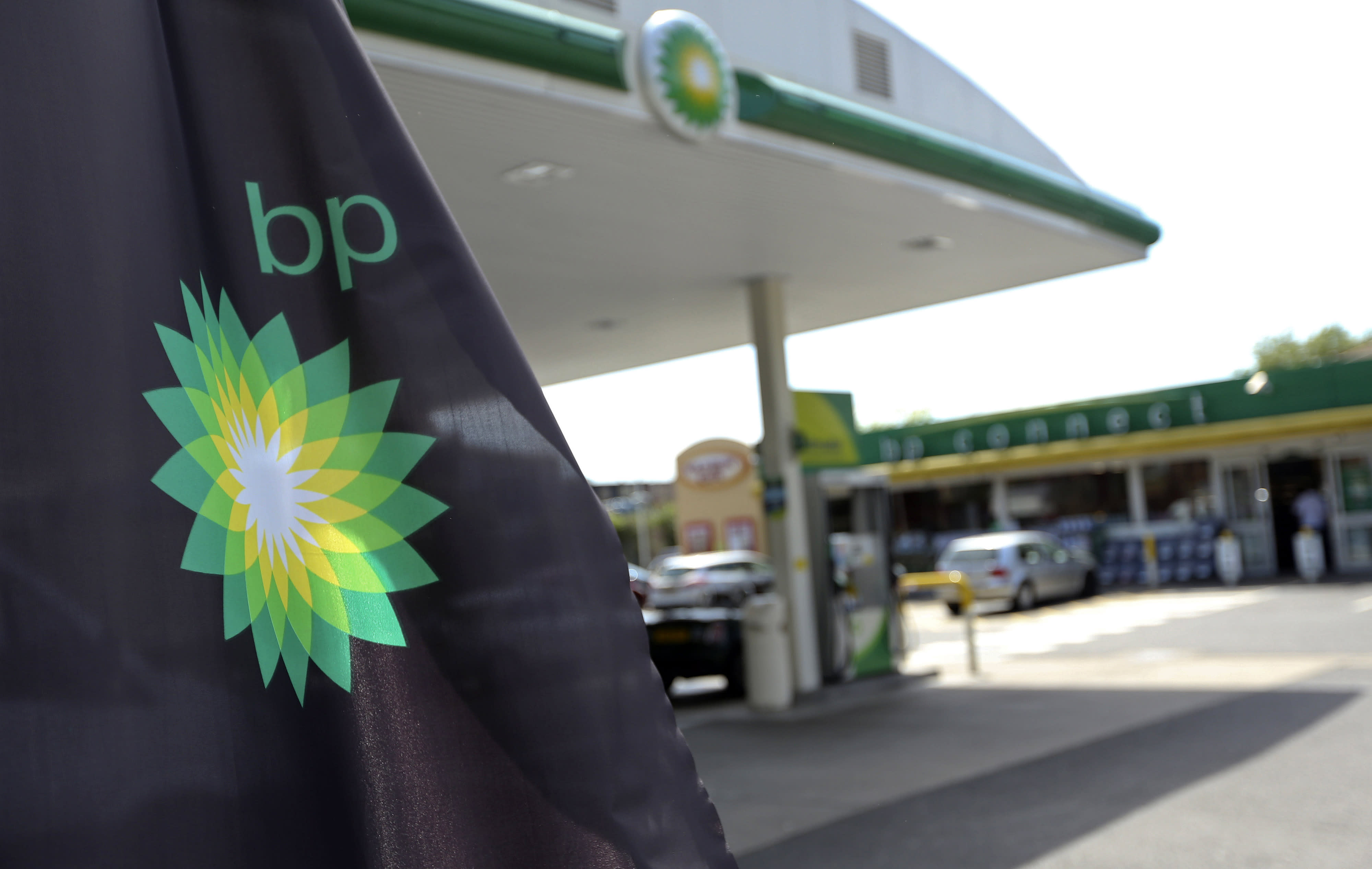A BP company logo at a gas station in London, U.K.
Chris Ratcliffe | Bloomberg | Getty Images
Energy giant BP reported a significant loss for the second quarter on Tuesday, after downgrading the value of some of its assets on expectations of lower commodity prices.
Second-quarter underlying replacement cost profit, used as a proxy for net profit, came in at a loss of $6.7 billion, meeting expectations of analysts polled by Refinitiv. That compared with net profit of $2.8 million for the same period a year earlier.
BP also announced that it had halved its dividend to 5.25 cents per share for the quarter, compared to 10.5 cents per share for the first three months of the year.
The reported loss for the quarter was $16.8 billion, in stark contrast to a profit of $1.8 billion for the same period a year earlier. This included a net post-tax charge of $10.9 billion for non-operating items.
The breakdown of this figure included $9.2 billion in impairments across the group, largely due to BP’s revised forecast for oil and gas prices over the next 30 years, and $1.7 billion of exploration write-offs.
The U.K.-based oil and gas company said last month that it could incur non-cash impairment charges and write-offs in the second quarter, estimating an aggregate range of $13 billion to $17.5 billion after tax. At the time, BP said the “enduring” impact of the coronavirus pandemic had prompted the firm to lower its oil and price forecasts through to 2050.
“These headline results have been driven by another very challenging quarter, but also by the deliberate steps we have taken as we continue to reimagine energy and reinvent bp,” Bernard Looney, CEO of BP, said in a statement on Tuesday.
“In particular, our reset of long-term price assumptions and the related impairment and exploration write-off charges had a major impact. Beneath these, however, our performance remained resilient, with good cash flow and – most importantly – safe and reliable operations,” he added.
Shares of BP are down more than 40% year-to-date.
International benchmark Brent crude futures traded at $43.85 a barrel on Tuesday morning, down almost 0.7%, while West Texas Intermediate (WTI) crude futures stood at $40.78, around 0.6% lower.
Analysts had anticipated that “Big Oil” companies, referring to the world’s largest energy majors, were likely to report “horrendous” second-quarter results as coronavirus lockdown measures coincided with an unparalleled demand shock and significantly weaker oil and gas prices.
However, some companies have been able to limit the damage as their trading divisions have capitalized on heightened market volatility.
